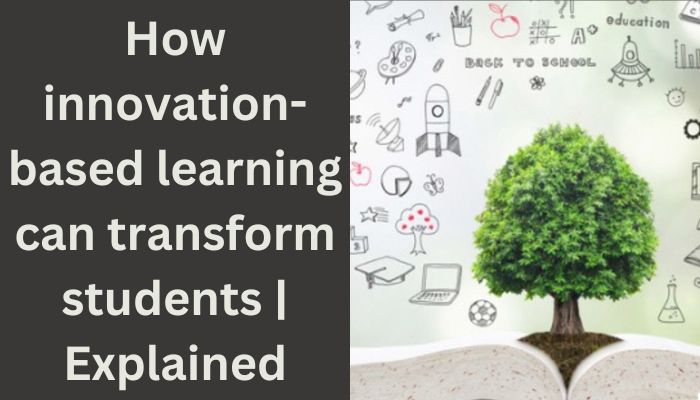In the ever-changing landscape of education, traditional teaching methods are undergoing a significant transformation. Driving this shift is innovation-based learning, an approach that prioritizes creativity, problem-solving, and adaptability. Natasha Mehta, the Head of Academic Research and Development at Lighthouse Learning Group, sheds light on how innovation-based learning equips learners with the skills and mindset needed to succeed in a world marked by constant change and technological progress.
Nurturing Critical Thinking and Problem-Solving Abilities
Innovation-based learning serves as a catalyst for developing critical thinking and fostering a problem-solving mindset in students. By presenting open-ended challenges and allowing room for experimentation, learners gain the ability to analyze situations, devise creative solutions, and adapt to various scenarios. This fosters intellectual curiosity and resourcefulness, which proves beneficial not only in academics but also in real-life situations.
Promoting an Entrepreneurial Mindset
One of the primary outcomes of innovation-based learning is the encouragement of an entrepreneurial spirit among students. This approach motivates them to identify opportunities, take calculated risks, and turn their ideas into actionable projects. Engaging in activities such as creating prototypes, formulating business plans, and exploring emerging technologies provides students with practical experience in entrepreneurship, equipping them with valuable skills for their future endeavors.
Fostering Collaboration and Interdisciplinary Learning
Innovation thrives at the intersection of various disciplines. Innovation-based learning often incorporates interdisciplinary methods, encouraging students to collaborate on projects that require expertise from different fields. This not only enhances their teamwork skills but also exposes them to a wider range of perspectives, enriching their learning experience and expanding their horizons.
Cultivating Adaptability and Resilience
In an era of rapid technological advancement, adaptability is a crucial skill. Innovation-based learning instills in students the ability to embrace change and navigate through uncertainty. By engaging with emerging technologies, experimenting with new methodologies, and learning from failures, students develop resilience and the confidence to confront unexpected challenges.
Encouraging Creativity and Innovative Thinking
At the heart of innovation is creativity. This approach empowers students to unleash their creative potential by providing opportunities to design, build, and express themselves. By exploring various mediums and techniques, students discover their unique strengths and talents, allowing them to approach problems with fresh, innovative perspectives.
Focusing on Lifelong Learning and Continuous Improvement
Innovation-based learning is not just a teaching method; it’s a philosophy that ignites a passion for lifelong learning. It fosters a growth mindset, where students view challenges as opportunities for personal growth rather than obstacles. This mindset encourages them to seek out new knowledge, explore emerging technologies, and continuously refine their skills throughout their educational journey and beyond.
Closing Thoughts
Innovation-based learning is not just an educational revolution; it’s a preparation for students to excel in a world characterized by continuous change and technological advancements. By nurturing critical thinking, fostering an entrepreneurial spirit, encouraging collaboration, instilling adaptability, promoting creativity, and emphasizing lifelong learning, this approach equips students with the essential tools to navigate the complexities of the modern world and to lead and drive positive change. As innovation-based learning continues to gain prominence, it promises to shape learners into empowered, resourceful, and visionary individuals poised to shape the future.

